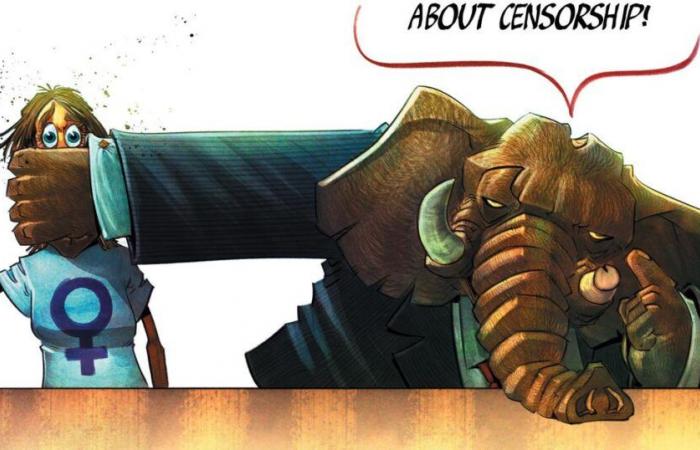Donald Trump's victory in the 2024 presidential election is certainly not just a backlash against the identitarian left. Inflation, in particular, weighed more heavily. However, the former president has made significant progress among Latino, black, Asian and Arab electorates, as well as among Generation Z and in large cities.
This observation, as much as the defeat of Kamala Harris, pushes the Democrats to re-examine the place they have until now given to identity politics to unite their electorate. “Identity politics must go the way of the dodo”, scolded Elissa Slotkin, newly elected senator from Michigan, during a meeting with other Democrats. “Identity politics has proven to be an electoral failure, and a real strategic fiasco”, Rahm Emanuel said Politico. New York Times columnist Maureen Dowd is delighted: “Finally some Democrats are waking up: no, Wokism doesn’t pay.”
Here's a change. At the height of “Great Awokening” [qu’on pourrait traduire par “grand réveil woke” ou “grand réveil militant”, en référence au Great Awakening, qui désigne plusieurs périodes de “réveil religieux” dans le monde anglo-saxon]while progressive whites veered further to the left than the average black electorate on issues of racism and discrimination, some left-wing intellectuals became convinced that identity politics was the future of progressivism.
Their intentions were laudable: seeing persistent inequalities in society, they were indignant that things were not changing more quickly, and therefore advocated for more radical measures to repair what they saw as injustices. These people then changed the Democratic Party. And Kamala Harris visibly rallied behind this speech, like other political figures, which should not only be of service to her in her race for the White House.
-A vague concept
The majority of Americans agree with the left that racism and sexism persist and that it is a problem. But the proponents of identity politics were wrong to believe that they would have the same majority to preach equity with them instead of equality. A promising realization is taking place: the Democratic Party urgently needs to reconnect with the majority of its camp. And for a major American political party to reject policy ideas that place skin color, gender or any particular identity at the forefront of who individuals are could only do the country as a whole good.
But all danger is not over. The concept of identity politics remains vague, and it is rarely defined. Pressed to specify what they are opposed to, most of his detractors have no shortage of examples to cite. But making fun of certain particular excesses (maligned neologisms of the type “Latinx” [forme invariable selon le genre] or the desire to replace “LGBTQ” with the untenable and laughable “LGBTQIA2S+”) says nothing about what needs to be done to get out of it without giving up defending the cause of the communities concerned.
“There is a real risk that we go too far”, thus estimated Illinois representative Kam Buckner in a recent article. “Without an e






